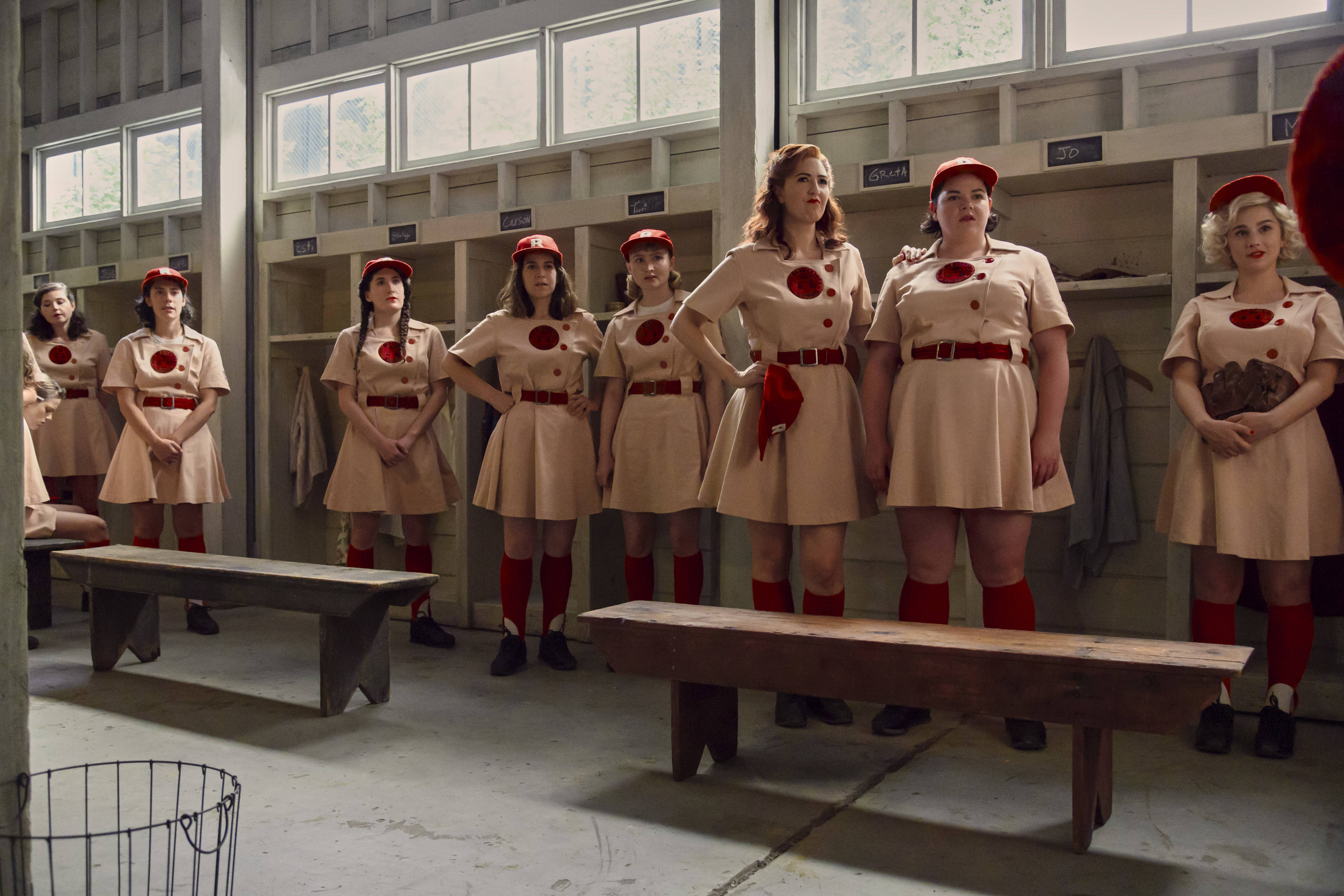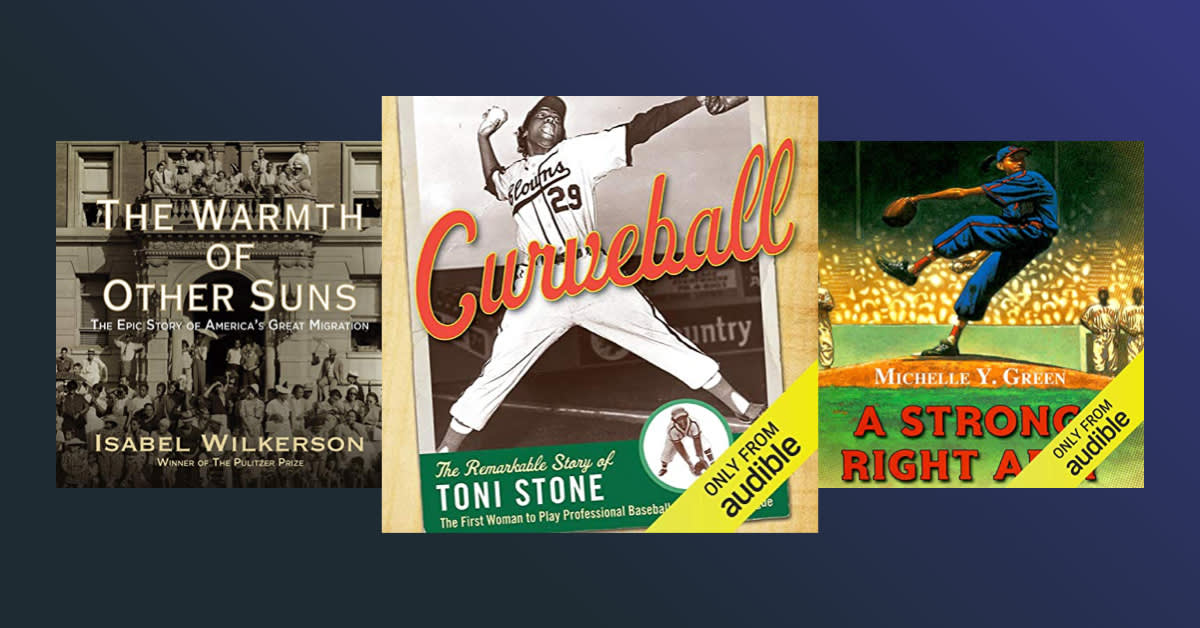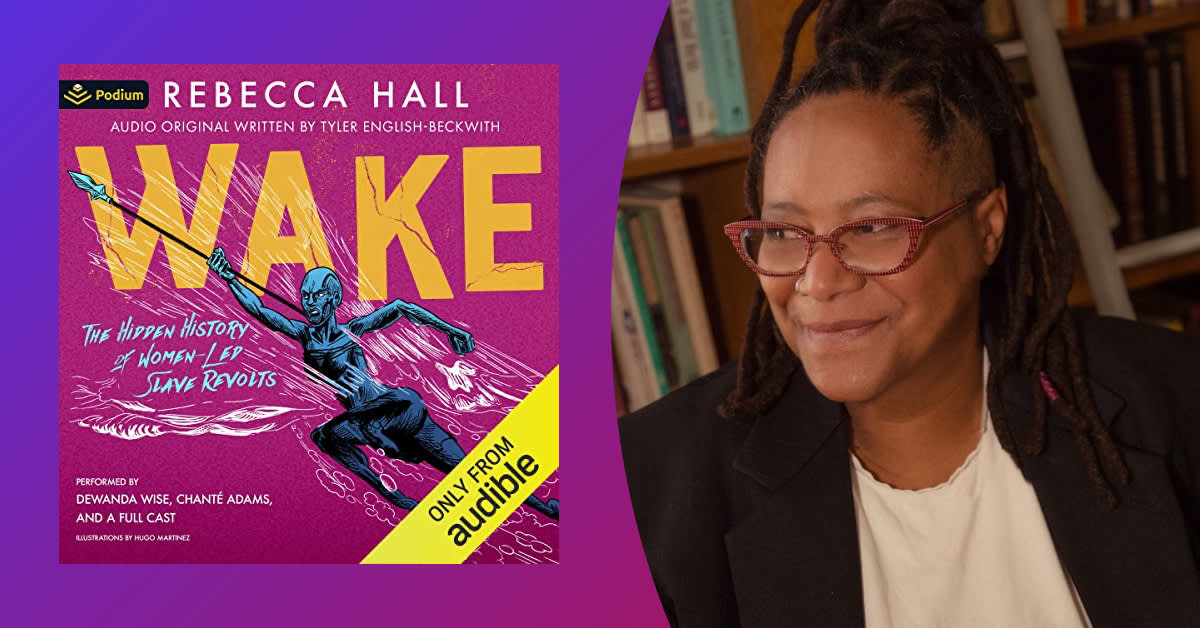The 1992 film A League of Their Own is a beloved sports movie classic. Director Penny Marshall was seen as a trailblazer for spotlighting the fictionalized account of the Rockford Peaches, a real-life professional women's baseball team that was formed during World War II. People have been reciting the line "There's no crying in baseball"—made famous by Tom Hanks's character—ever since.
Now, 30 years after the film debuted, Abbi Jacobson (Broad City) and Will Graham have adapted the story and expanded it into an original TV series for Prime Video. The historical period dramedy details the formation of the All-American Girls Professional Baseball League (AAGPBL), but it also chronicles the lives of its many players, addressing the movie's conspicuous gaps when it comes to racial prejudices, sexual and gender identities, and gender inequities.
“We’re not trying to retell the stories that are told in the film,” Jacobson has explained in interviews. “We are really attempting to tell the stories that were missing from the film, and about this league in particular. ... The more we researched [it], the more we researched queer culture at the time, the more it just felt really important to show those stories.”
When Graham spoke to Audible recently, he said that while the show is "authentically very queer and also focuses on women of color," he also thinks it's universal. "These are stories about people finding their dreams and trying to realize themselves. I think that's something we can all relate to."

Of course, it took an incredible amount of work to have such fully realized characters, and Graham estimates that he and Jacobson now have many thousands of pages in their research "bible."
"For me, personally, I grew up loving history, have always loved old documents and letters, so just getting to be submerged in these stories has been great," he says. "And especially the queer stories, knowing that these are really joyful stories, we definitely don't get a lot of those in a historical context. Almost every single part of this show is based on really deep, thorough research."
Graham cites works by Kat D. Williams, such as Isabel “Lefty” Alvarez: The Improbable Life of a Cuban American Baseball Star, along with Playing America's Game: Baseball, Latinos, and the Color Line by Adrian Burgos, as helpful guides to understanding the prejudices and difficulties of accessing and thriving in the sport. We asked him what other books he recommends, and he shared his top five listens for learning more about the era and the challenges people faced to follow their dreams.
Chronicling Toni Stone's career, this biography follows her experiences playing first with the Indianapolis Clowns, and later with the Kansas City Monarchs. It also details her encounters with the era's top athletes—Ernie Banks, Willie Mays, Buck O'Neil, and Satchel Paige to name a few. As the exploration reveals her remarkable talent, perseverance, and accomplishments, it shows how she posed a double threat—Black and female—to the dominance of white males in sports and society.
Motivated by her love for the game and inspired by the legendary Jackie Robinson, Mamie Johnson is determined to be a professional baseball pitcher. But in a sport that's controlled by white men, there is no place for a Black woman. Mamie doesn't give up—from the time she insists on trying out for the all-male, all-white Police Athletic League until she realizes her dream and becomes one of three women to play in the Negro Leagues. Mamie Johnson's life shows that with courage and perseverance one can overcome even the greatest challenges.
In Double Victory, a broad spectrum of American voices emerge to illustrate the various struggles and victories fought during wartime: a Japanese American at an internment camp; a Native American code breaker using the Navajo language for the first time; a Mexican American woman, "Rosarita, the riveter," who was allowed to work a job during wartime other than housecleaner or maid.
From 1915 to 1970, the exodus of almost six million Black Americans from the South to northern and western cities changed the face of the country. Isabel Wilkerson compares this epic migration to the migrations of other peoples in history. She interviewed more than a thousand people, and gained access to new data and official records, to write this definitive and vividly dramatic account of how these American journeys unfolded, altering our cities, our country, and ourselves.
The inclusion of a Black trans character in A League of Their Own feels groundbreaking partly because of their erasure from trans history, which masks the ways race has figured prominently in the construction and representation of transgender subjects. In Black on Both Sides, C. Riley Snorton identifies multiple intersections between Blackness and transness from the mid-19th century to present-day anti-Black and anti-trans legislation and violence.









